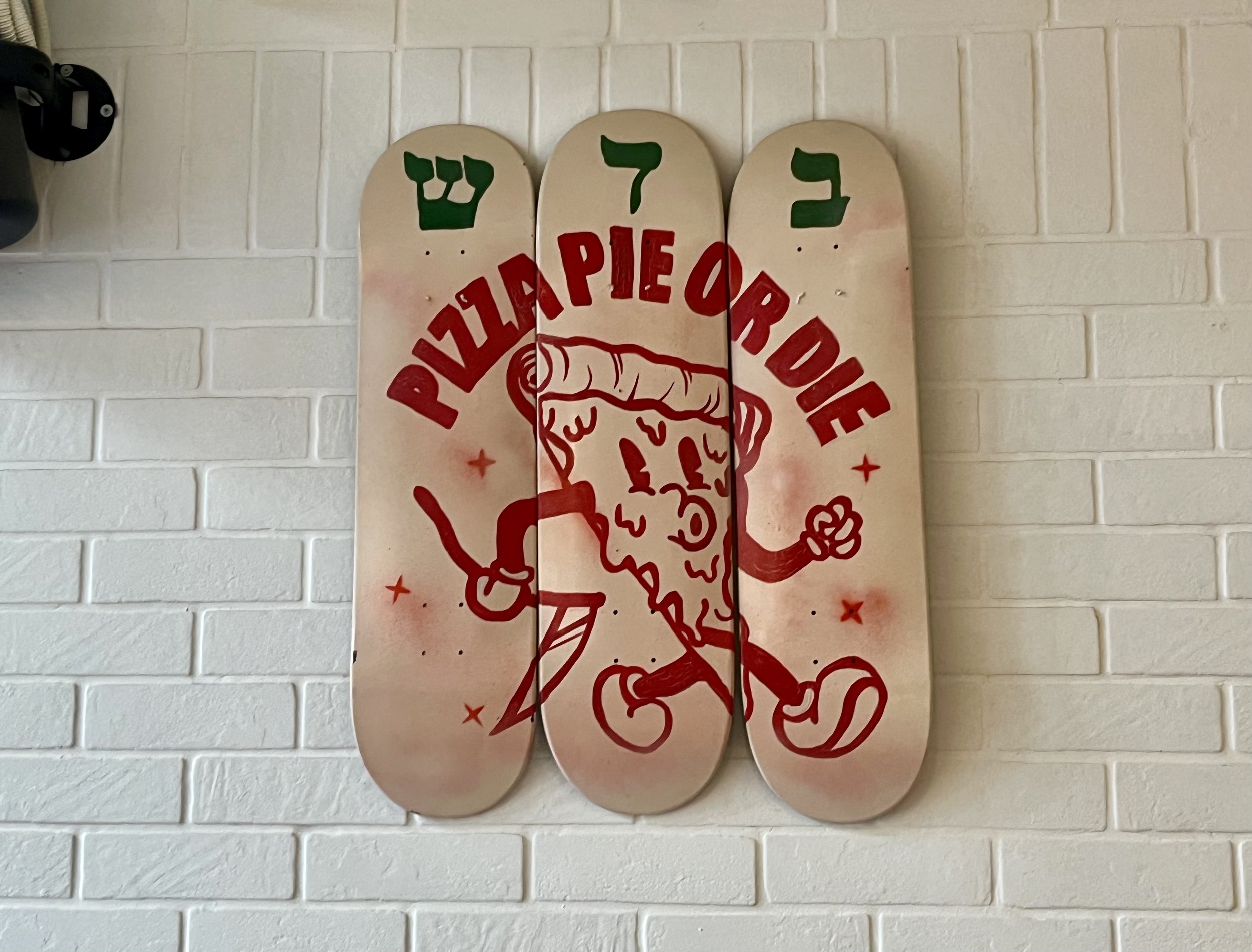Massacre and Pizza
During World War II, Louis G. Schwartz, a waiter at the Sixth Avenue Deli singlehandedly raised 9 million dollars for the war effort with the slogan "You'll buy War Bonds sooner or later / So get them today from Louie the Waiter.” He also came up with “Send a Salami to Your Boy in the Army,” which became the catchphrase for Katz’s Delicatessen.
So, it was fitting that Yoav wore his Katz’s t-shirt to our volunteer job at Pizza Badash, where we made pizza for people “sitting shiva,” that is, mourning a loved one. But I can’t simply leave the translation at “mourning a loved one” because that doesn’t capture what we’re talking about here. We’re talking about people who first learned of their grandmother’s murder on Facebook, because after the Hamasniks butchered her, they took the old woman’s cellphone, and used it to post pictures of her body on her Facebook wall.
Obviously, in the face of that kind of horror, pizza seems inane, and yet, people have to eat.
We received a text message asking for volunteers to fold pizza boxes, but when we arrived at the pizzeria, they had enough folders. What they didn’t have, though, was enough people who knew how to make pizza and some mangled messes were coming out of the oven. Coincidentally, Yoav has been obsessed with pizza making for the past year, and in usual “Yoav the Scientist” fashion has tested and re-tested hydration percentage, different fermentation processes, proofing time, flour types, stretching techniques, how to best launch the dough with the steel peel. After I told the overseer of the volunteer operation that my husband had “studied” pizza, she said, “Get him behind the counter.” And that's how I landed there, too.
While making the pizzas, the rocket sirens kept sounding off, forcing everyone to drop the boxes they were folding or the tomato sauce they were scooping and run for cover. It was make pizza, hide from rockets, make pizza, hide from rockets, repeat. The first two times, everyone ran to the stairwell. When I asked the guy sheltering next to me, “Why are we in the stairwell?”, he said it was to get as far away as possible from glass, like the pizzeria’s storefront. One explosion boomed so loud. The sound is felt in the chest.
When the sirens wailed a third time, we ran to a protected room on the second floor of the building next door. When we left that shelter, we passed a seventyish woman on the stairs, seated next to her son, who was holding her while she remained gripped by panic. Perhaps she couldn’t climb the stairs fast enough to get to the protected room. One of the pizza volunteers offered her water, and at first, the woman could only stare at the volunteer and the proffered water in terrified confusion, her eyes oddly blank and her mouth in a static o. And then she said, yes.
Unfortunately, when you leave pizzas in the oven to hide in a bomb shelter, they burn. Those pies ended up in the garbage instead of being carried off to grieving families.
Sheltering in the stairwell.






